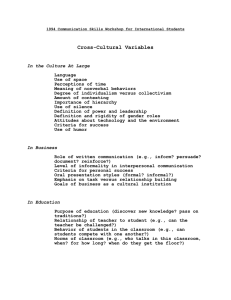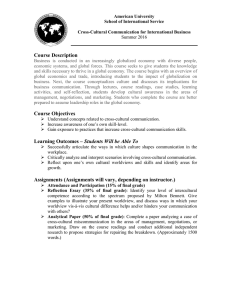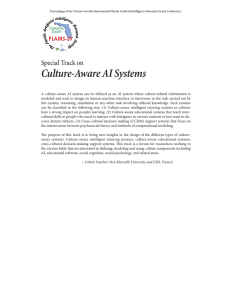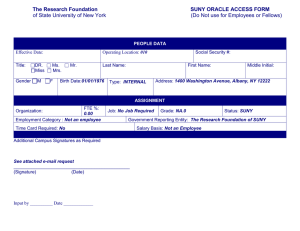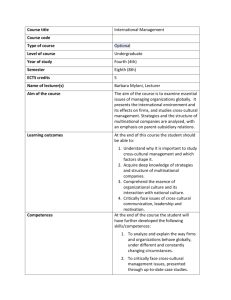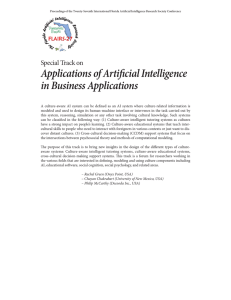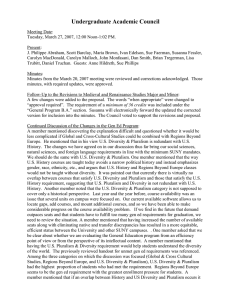Undergraduate Academic Council
advertisement
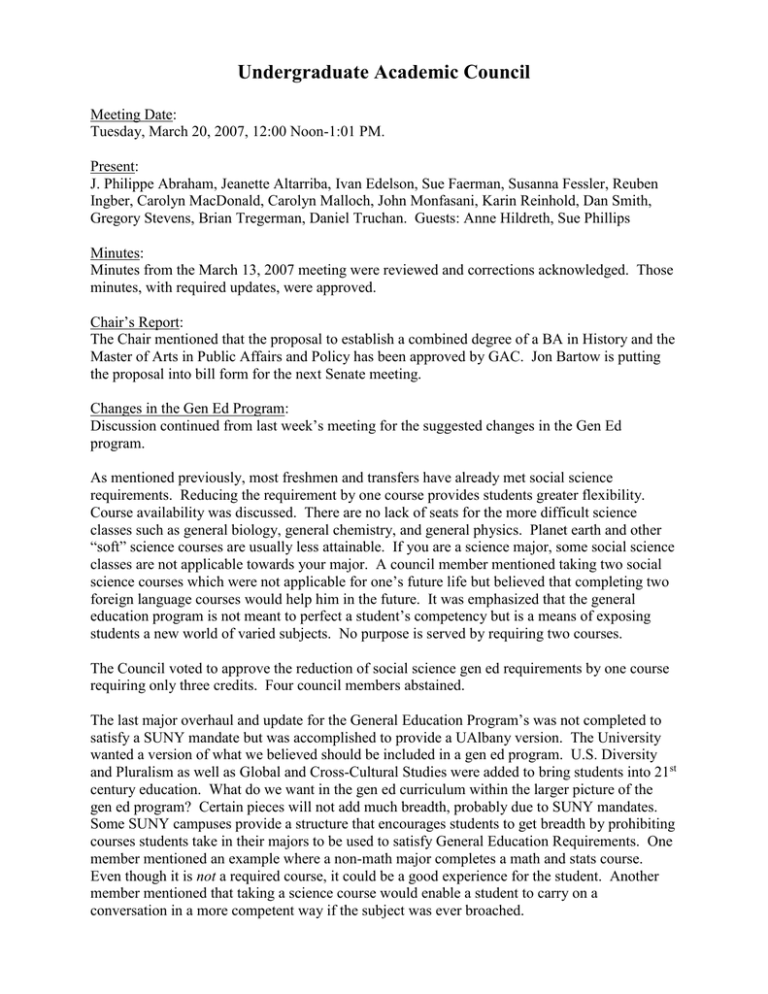
Undergraduate Academic Council Meeting Date: Tuesday, March 20, 2007, 12:00 Noon-1:01 PM. Present: J. Philippe Abraham, Jeanette Altarriba, Ivan Edelson, Sue Faerman, Susanna Fessler, Reuben Ingber, Carolyn MacDonald, Carolyn Malloch, John Monfasani, Karin Reinhold, Dan Smith, Gregory Stevens, Brian Tregerman, Daniel Truchan. Guests: Anne Hildreth, Sue Phillips Minutes: Minutes from the March 13, 2007 meeting were reviewed and corrections acknowledged. Those minutes, with required updates, were approved. Chair’s Report: The Chair mentioned that the proposal to establish a combined degree of a BA in History and the Master of Arts in Public Affairs and Policy has been approved by GAC. Jon Bartow is putting the proposal into bill form for the next Senate meeting. Changes in the Gen Ed Program: Discussion continued from last week’s meeting for the suggested changes in the Gen Ed program. As mentioned previously, most freshmen and transfers have already met social science requirements. Reducing the requirement by one course provides students greater flexibility. Course availability was discussed. There are no lack of seats for the more difficult science classes such as general biology, general chemistry, and general physics. Planet earth and other “soft” science courses are usually less attainable. If you are a science major, some social science classes are not applicable towards your major. A council member mentioned taking two social science courses which were not applicable for one’s future life but believed that completing two foreign language courses would help him in the future. It was emphasized that the general education program is not meant to perfect a student’s competency but is a means of exposing students a new world of varied subjects. No purpose is served by requiring two courses. The Council voted to approve the reduction of social science gen ed requirements by one course requiring only three credits. Four council members abstained. The last major overhaul and update for the General Education Program’s was not completed to satisfy a SUNY mandate but was accomplished to provide a UAlbany version. The University wanted a version of what we believed should be included in a gen ed program. U.S. Diversity and Pluralism as well as Global and Cross-Cultural Studies were added to bring students into 21st century education. What do we want in the gen ed curriculum within the larger picture of the gen ed program? Certain pieces will not add much breadth, probably due to SUNY mandates. Some SUNY campuses provide a structure that encourages students to get breadth by prohibiting courses students take in their majors to be used to satisfy General Education Requirements. One member mentioned an example where a non-math major completes a math and stats course. Even though it is not a required course, it could be a good experience for the student. Another member mentioned that taking a science course would enable a student to carry on a conversation in a more competent way if the subject was ever broached. UAC Minutes, 3/20/07 Page 2 of 2 There are few common classes in Regions Beyond Europe and Global and Cross-Cultural Studies. They are parceled out into Global and Cross-Cultural Studies. R Pos 102 (Comparative and International Politics) was given as an example that would fit under the proposed new category “Global and Pluralism”. The main problem with classes students believe meet Regions Beyond Europe requirements is when they do not focus on one region. If a student takes a U.S. Diversity & Pluralism class along with, as an example, a Chinese Studies class, the student will not complete the Global and Cross-Cultural Studies requirement. It was noted that a strict reading of the current Regions Beyond Europe learning objectives might be misleading. Two years ago the General Education Committee began interpreting the learning objectives differently and relaxed the previous reading that required courses to have an historical emphasis. It was suggested that the Regions Beyond Europe category be modified to encompass world history courses. By doing so, it would create more courses in this stressed category. The committee looked at global and cross-cultural studies courses and believes they do not belong in Regions Beyond Europe. When SUNY mandates were implemented, Other World Civilizations was locally labeled Regions Beyond Europe. As stated in last week’s handout, “…..The SUNY learning objectives for "Other Worlds" is "knowledge of EITHER a BROAD outline of world history, OR the distinctive features of the history, institutions, economy, society, culture, etc., of ONE non-Western civilization." Political geographic boundaries became the determination factor for student claim arguments to be included in categories and ensure it was academically defensible. Regions Beyond Europe encompasses the 21st century with many cross cultural influence. Global and Cross-Cultural Studies includes courses of European influence. Regions Beyond Europe and Global and CrossCultural Studies have different purposes. Regions Beyond Europe covers one region beyond Europe or European North America. Global and Cross-Cultural Studies regards the societal impact when two cultures come in contact with each other. The Global and Cross-Cultural Studies requirement could actually be abolished but could never be combined with Regions Beyond Europe since Regions Beyond Europe is a SUNY mandate. If Global and Cross-Cultural Studies and U.S. Diversity & Pluralism are combined, a student might never take a course that is comparative in nature. A suggestion was made to modify the learning objectives in a way that facilitated double-counting of courses that were both comparative and focused on regions outside Europe. Discussions will continue next week for the suggested changes in the General Education Program. Next Meeting: The next Undergraduate Academic Council meeting will be held Tuesday, 3/27/07, 12:00 Noon, LC-31J. Minutes Taken: Notes taken by Joanne Baronner, Undergraduate Education.
